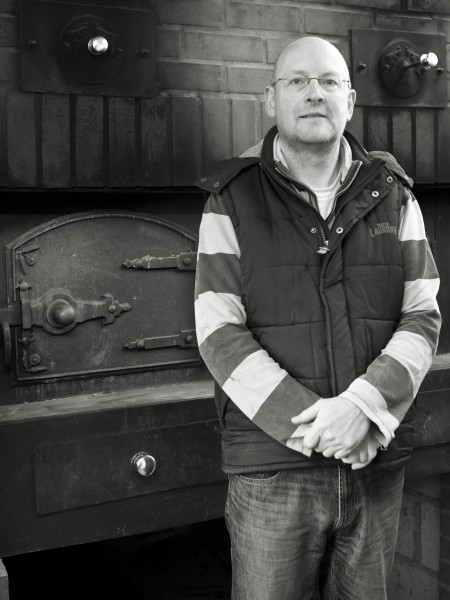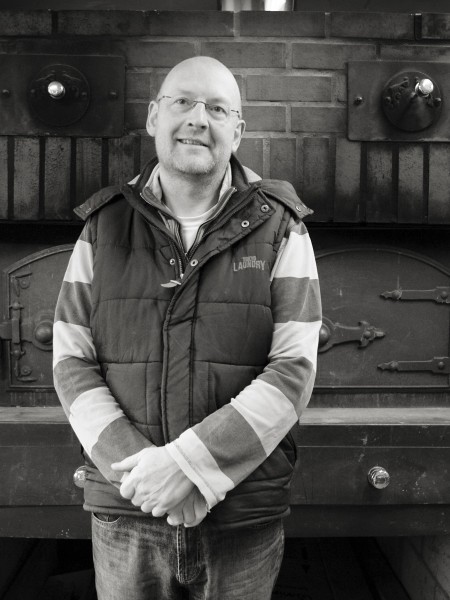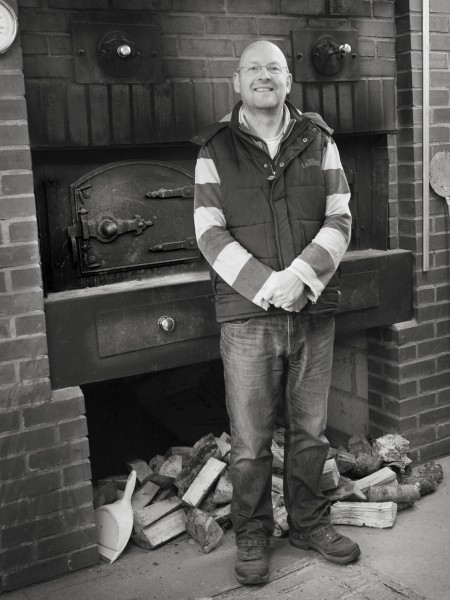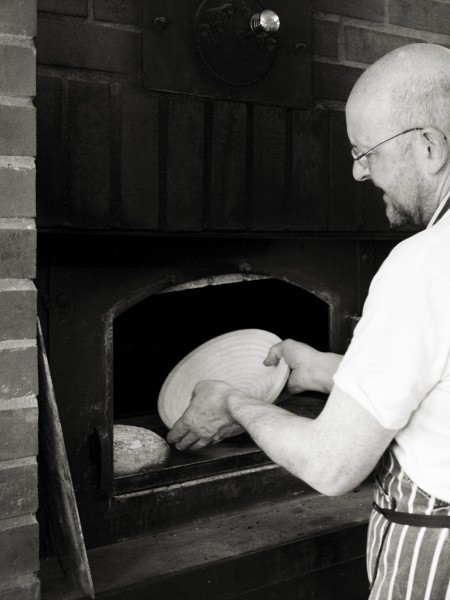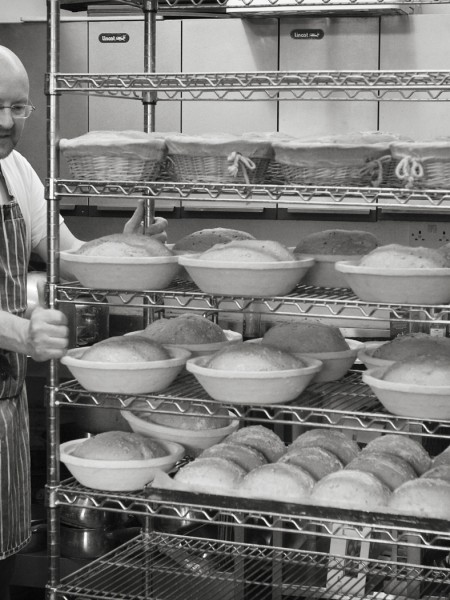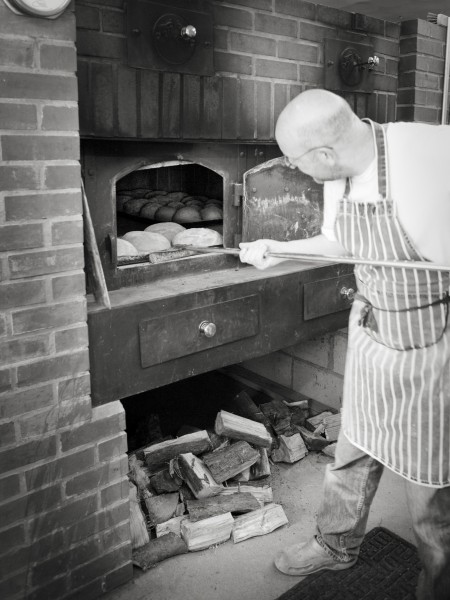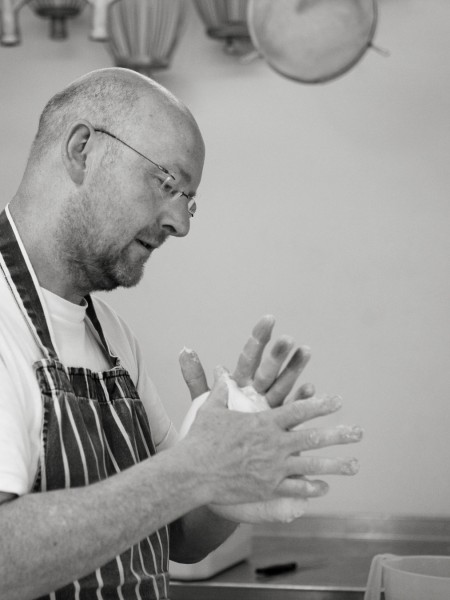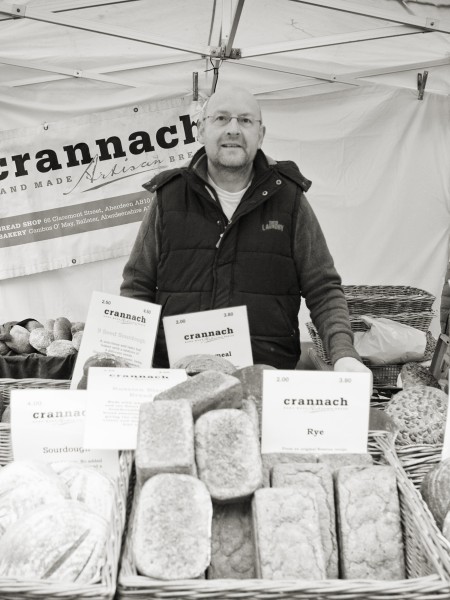Q. What is your principle professional skill?
A. I’m a Baker.
Q. Can you tell us a little about it?
A. I started a coffee shop in 1999 and I started baking bread for the shop. Around 2000/2001 delicatessen started to open up in Aberdeen, and farm shops and farmers markets began to appear so I started to bake bread for them too. At that time I was the only one doing things on the organic front in the area. I use a wood oven and organic, locally sourced flour. I was very busy for a couple of years but then the delis started to tail off. Now my sales are principally the farmers markets which I do once a week. I used to go up to the Huntly area but now I have a stand at Stonehaven, Inverurie, Banchory and Aberdeen Farmers Markets.
Q. How long have you been practising your skill?
A. About 12 or 13 years.
Q. How did you learn your skill?
A. I am self-taught.
Q. How long did it take?
A. It’s a gradual learning process, improving over time.
Q. Are there any other people in the region doing what you do?
A. Not exactly. Probably the closest comparable baker is in Findhorn.
Q. How important do you think your skill is for the region?
A. That’s difficult to say. My aim when I began was to provide good quality organic produce. However it is more expensive due to the cost of the ingredients and I therefore supply a small percentage of the population. My most consistent clientele is at the farmers markets, 80 percent of my sales are to known customers. Some people have been buying the same thing from me for years. I think they would miss me if I wasn’t there.
Q. How has your profession evolved over the last few decades?
A. Small businesses are making a come back, with people starting to bake bread, etc, from their own kitchens, garages, etc. It could be to do with the economy. Prior to the 1960s most bread was made by small bakers so it’s a return to that.
Q. What are the main differences between now and when you started?
A. I get my flour from a farmer in Northumberland who grows heritage varieties, pre-war varieties of wheat. The yields are lower but the wheat has less protein than modern varieties and that affects the gluten content. The bread is therefore easier to digest.
Q. How do you anticipate the future to be for your skill?
A. It goes in cycles. I run bread making courses which are well attended, but they need to have the ability to maintain an interest. There is now the Real Bread Campaign, set up by Andrew Whitley, who was a BBC correspondent in Russia. He noticed that in Russia they are able to bake good quality bread on a large scale so why can’t we? Through that campaign schools have become involved.
Q. How important do you think it is to pass the skill on to the next generation?
A. Very important.
Q. How could that be achieved?
A. People learning would have to start in a bigger bakery but keep an independent mind in order to do their own thing.
Q. Would you be prepared to train someone?
A. I am not a big enough bakery to take someone on. People have asked to be taken on as an apprentice but I couldn’t offer them enough work.
Q. Do you think that society should feel obliged to find a way of preserving such skills?
A. That’s very hard to answer. It comes down to having to make a living from it. It would have to be funded.
Q. Does having a skill change the way you see the world?
A. Yes, it makes you think small. I regularly go to the Terra Madre in Turin, a forum for small food producers. They fund small communities in third world countries to enable producers to come to the event. People whose skills hold communities together. I meet people from all over the world.
Q. What kind of rewards to you get from your skill, monetary and/or otherwise?
A. The feedback from people. Being made to feel that what you are doing is worthwhile.
Q. What impact has broadband and the internet had on your work?
A. Primarily for the bread making courses we have a website, people can message us through that.
Q. How do you use the internet for your work?
A. Some ordering over the web but not a lot. I usually use the telephone.
Q. What, if anything, could be done to help preserve your skills and support your profession?
A. The introduction of apprenticeship schemes.
